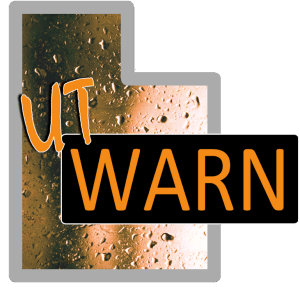Executive Summary
NRWA estimates small water and wastewater systems will lose $998 million in revenue by mid-July. This loss in revenue will not be recovered by utilities and does not include emergency operational costs such as staging additional shifts, isolating staff, modifying procedures for regulatory compliance, purchasing PPE, and additional equipment for remote work.
The National Rural Water Association urges Congress to take action now to include water and wastewater systems in the next stimulus bill and/or take independent action to ensure their sustainability and financial solvency. Public water and wastewater utilities are essential to protect public health and the environment. Small and rural communities have done their part to meet the public’s needs during the COVID-19 pandemic by maintaining and restoring customer access to services regardless of payment. They need assistance from Congress now to protect the public they serve.
Survey Overview
4,636 water and wastewater utilities across 50 states & U.S. Territories responded. NRWA designed this survey to be a rapid needs assessment of critical impacts of COVID-19. The survey currently has a 100% completion rate.
Utility Services Provided
Answered: 4,690 Skipped: 24
System Characteristics
NRWA received broad responses representing different sizes and types of water and wastewater utilities. Collectively, these systems serve 29,016,515 people and 1,386,787 businesses.
Organizational Structure
Answered: 4,500 Skipped: 214
Special District
0HOA/Mobile Home Park
0Other Government
0Cooperative/
Association
Other
0For-Profit
0Municipality
0Water Usage/Treatment
NRWA surveyed customer water usage to estimate the potential for lost revenue due to the COVID-19 emergency. Many systems have not completed a full billing cycle spanning the emergency.
- 31% of systems saw a decrease from normal usage, with an average drop of 25%. The range was very broad, from a slight decrease to a total shutdown.
- 57% of systems saw no decrease in customer usage or an increase in usage due to more residents staying at home.
Reasons for less water usage
Answered: 2,383 Skipped: 2,331
Lost Revenue
49% of systems have already lost revenue due to the COVID-19 emergency, with collection down an average of 22%. Many systems expect to lose revenue in the near future. Systems who are providing more water than usual are still experiencing revenue loss due to nonpayment of bills.
- Systems reported $67,269,577 in actual revenue losses to date, averaging $34,112 per system.
- Anticipated revenue loss over the next 90 days totaled $171,619,108, an average of $86,502.
Have you lost revenue due to nonpayment of bills?
Answered: 4,607 Skipped: 107
Other Concerns
On average, system managers are moderately concerned about maintaining required staffing due to COVID-19 and financial sustainability due to loss of revenue. However, effects of coronavirus are unevenly distributed across the nation. 18% of system managers are concerned or very concerned about maintaining continuity of operations due to staff illness and/or revenue loss. Other concerns are noted below.
Problems Obtaining Essential Chemicals and Equipment
Answered: 2,725 Skipped: 1,989
Problems with lab samples or regulatory compliance due to COVID-19
Answered: 4,632 Skipped: 82
Estimated Impact on Small Systems
Based on this survey data, NRWA has conservatively estimated $817 million in lost revenue for small community water systems over the next 90 days. Small wastewater systems will face $181 million in lost revenue.
NRWA estimates the total financial impact on small and rural systems to be at least $998 million by mid-July. This loss in revenue will not be recovered by utilities and does not include emergency operational costs such as staging additional shifts, isolating staff, modifying procedures for regulatory compliance, purchasing PPE, and additional equipment for remote work.
- Small systems (serving less than 10,000 people) made up 93% of survey respondents. 32% of these systems were able to forecast revenue loss over the next three months. The average revenue loss of these small systems was $56,474.
- Small drinking water systems comprise 91% of all U.S. systems. There are currently 45,227 small community water systems serving 10,000 persons or less out of a total of 49,602 systems, according to EPA data. The potential financial impact assumes 32% of America’s 45,227 small water utilities are affected.
- Publicly-available federal information on wastewater utilities is less certain. NRWA assumed wastewater systems will bear similar costs as drinking water utilities. Approximately 10,000 small wastewater systems exist in the U.S.
Conclusions
The COVID-19 pandemic has affected the financial stability of water utilities across the nation. However, the impact on any given utility is dependent upon several factors:
- Utilities with customer bases heavily dependent on tourism, manufacturing or large customers (schools, government buildings) are more impacted
- Utilities with customer bases suffering high unemployment and economic distress are more impacted
The National Rural Water Association urges Congress to take action now to include these essential public services in the next stimulus bill and/or take independent action to ensure their sustainability and financial solvency. Public water and wastewater utilities are essential to protect public health and the environment. Small and rural communities in particular need assistance to lessen the financial burden on ratepayers who are already strapped from the pandemic.
Have you experienced water loss due to the COVID-19 Pandemic? We encourage you to email your Congressman and send them the letter below.
If you are unsure who your Congressman is, please also click the link below. The link will also give you contact options.
The above information was written and published by the National Rural Water Association
